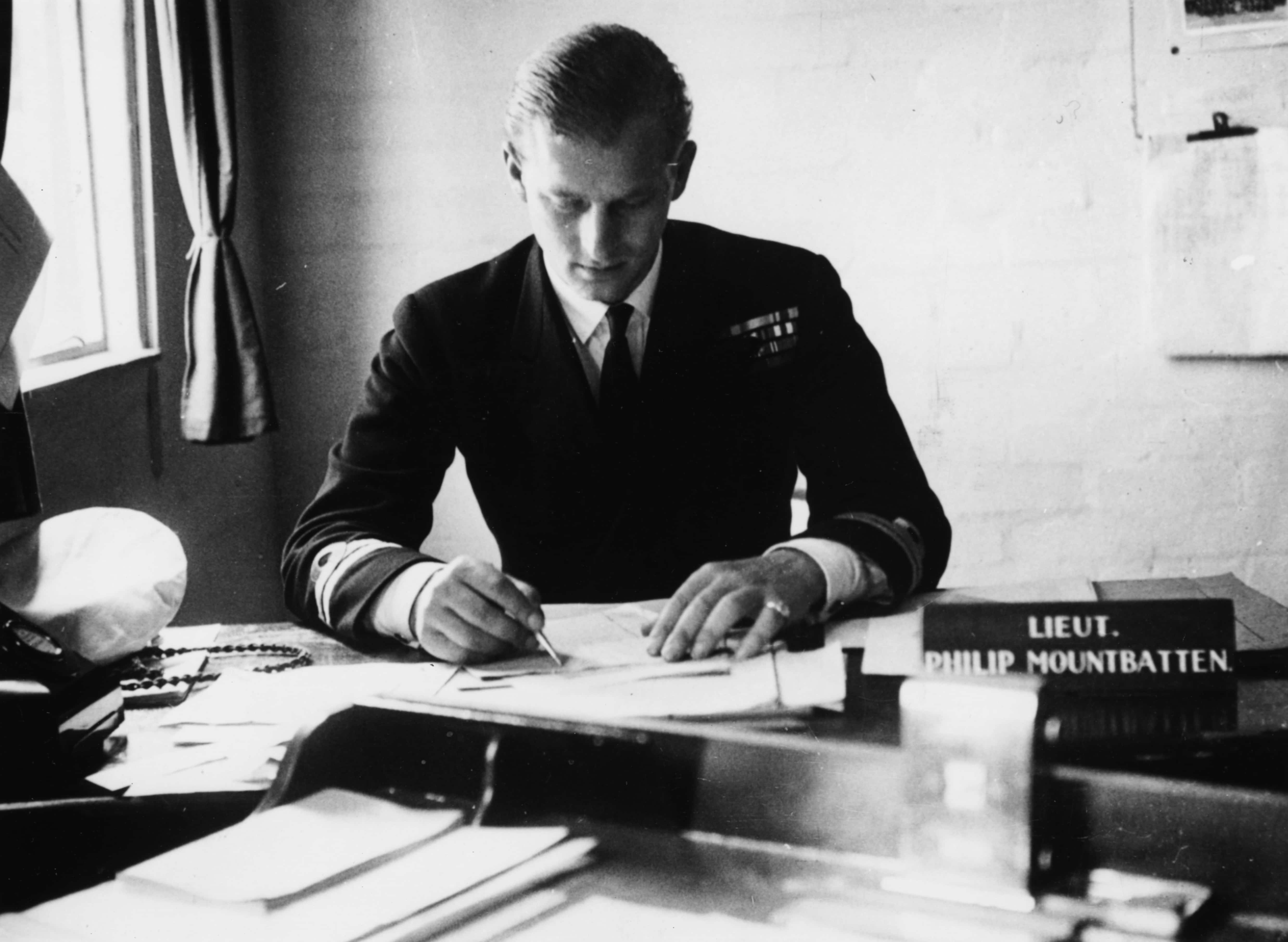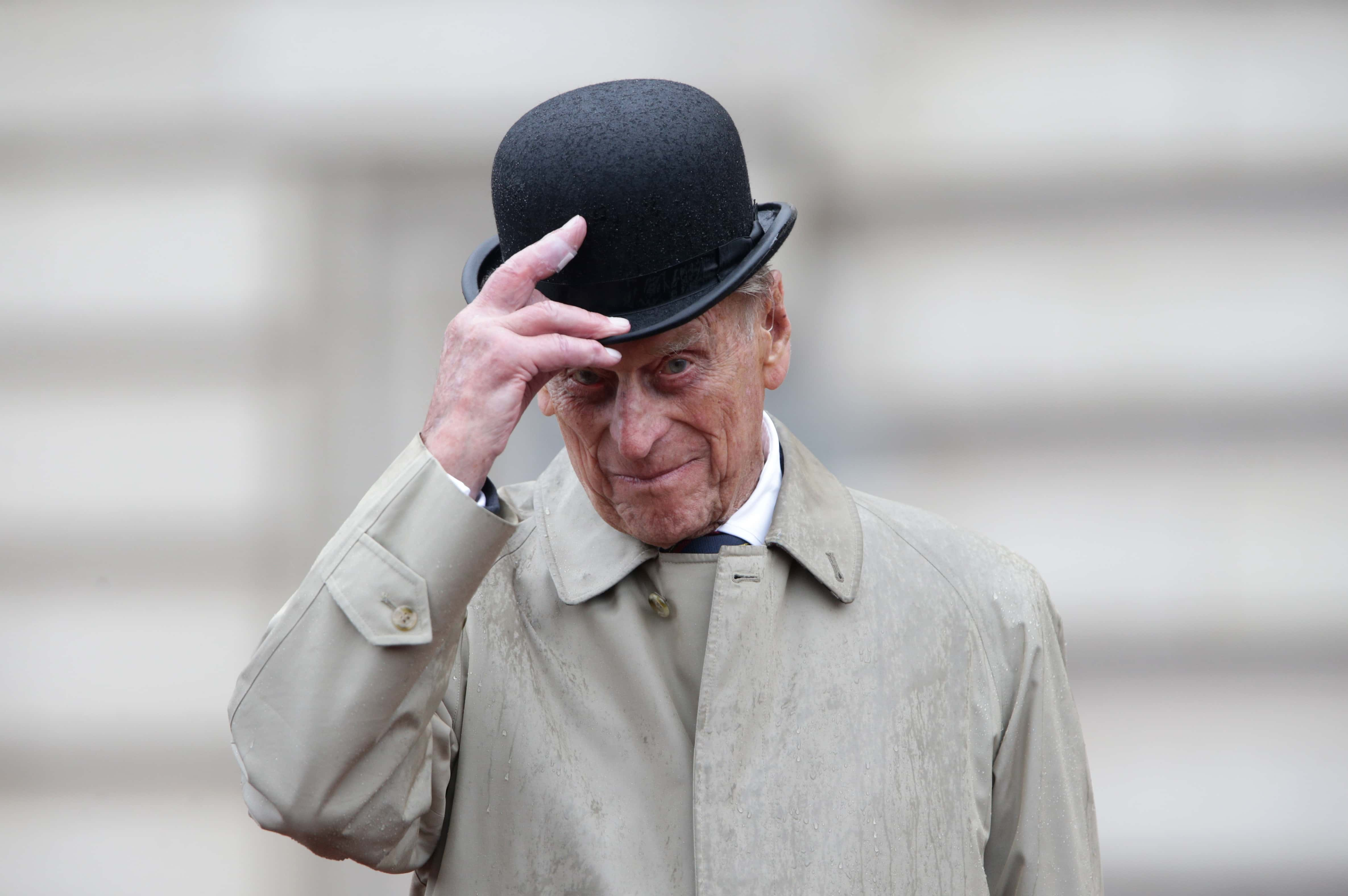Was Prince Philip born on kitchen table? Dining top from Duke of Edinburgh's birth ended up in London boardroom

Prince Philip, Duke of Edinburgh, died on Friday, April 9. Having lived 99 years, Philip led an extraordinary life. He was born into the Greek and Danish royal families in Greece, but his family was exiled from the country when he was just eighteen months old. He reportedly escaped war-torn Greece in a small cot crafted from a fruit box.
Equally unique is the fact that Philip was reportedly born on June 10, 1921, on the kitchen table at his family home Mon Repos on the Greek island of Corfu. BBC royal correspondent Jonny Dymond reported that the table in question ended up in a boardroom in London -- with “full video-conferencing facilities”. Dymond said, “The modernizer in the man would have been thrilled,” about the Duke of Edinburgh's birth table serving as a place for conferences.
RELATED ARTICLES
How Prince Philip was in the line of succession to two thrones before marrying Queen Elizabeth II

The table was bought by Howe Robinson Partners, one of the largest privately owned shipbroking houses in the world. Now based in Singapore, the Howe Robinson Group of companies traces its origins to the foundation of Howe Robinson and Co. Ltd. in the City of London in 1883.
Guy Hindley, a managing partner of the company, told BBC, “We’ve had [the table] in our office since 1980 but it dates back to much further than that.” On being asked if he knew why the Duke of Edinburgh was born on the table, he said, “All we can say is that when we look at old biographies, it talks about the doctor at that time suggesting that the bed was somehow not appropriate. And so, she was carried downstairs and placed on the dining room table.”
When Dymond asked, “which was more appropriate if rather less comfortable?” Hindley said, “Perhaps that’s the case. I think it was made to be as comfortable as possible.” An antique expert told the BBC that the table was Queen Anne’s style, as were the chairs.
James McWhirter of James McWhirter Ltd, an antique dealer, that deals in “beautiful, interesting and quirky antiques and works of art, ranging in date and scope from early 17th century Chinese porcelain to late 20th century Moroccan carpets, and everything in between," however said that they were mass-produced, so “nothing special”. But the Duke of Edinburgh being born on it “definitely adds to its value” he said.

Princess Alice of Battenberg, Prince Philip’s mother, was the great-granddaughter of Queen Victoria. She was born in Windsor Castle and grew up in Great Britain, Germany, and the Mediterranean. A Hessian princess by birth, she was a member of the Battenberg family.
As per Esquire magazine, in 1928, Princess Alice began to behave strangely, claiming to be in contact with Jesus Christ and the Buddha, from whom she believed she was receiving divine messages. She also claimed to have healing powers. In 1930 she was diagnosed with schizophrenia and committed to a sanatorium in Switzerland.
In 1938, Princess Alice returned to Athens, where she worked with the poor and underprivileged. She worked with the Red Cross, organized soup kitchens for starving Athenians, and smuggled medical supplies into Greece from Sweden. In 1943, she sheltered a Jewish widow and her two children, hiding them in her home. She reportedly pretended not to understand what was being asked when the Gestapo questioned her on account of her deafness.
During a ceremony in Jerusalem honoring his mother as “Righteous Among the Nations” -- an honorific used by the State of Israel to describe non-Jews who risked their lives during the Holocaust to save Jews from extermination by the Nazis for altruistic reasons -- Prince Philip said, "I suspect that it never occurred to her that her action was in any way special. She was a person with deep religious faith and she would have considered it to be a totally human action to fellow human beings in distress."










